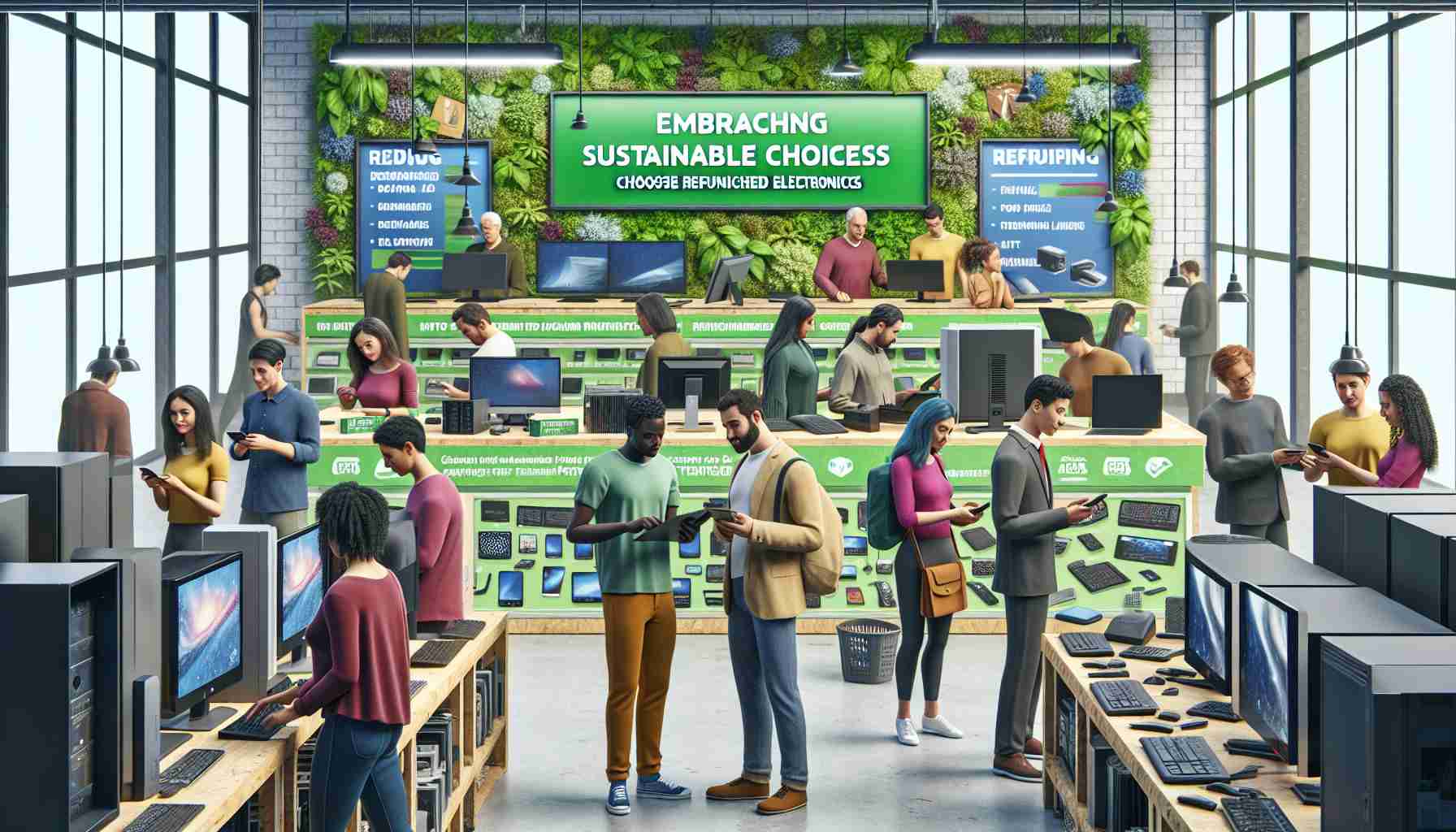Reducing Electronic Waste: The staggering growth in electronic waste poses a pressing challenge for the future. In 2022 alone, individuals globally generated an average of almost 8 kilograms of electronic waste per person, totaling approximately 62 million tons. The Global E-waste Monitor report anticipates a concerning annual average of 82 million tons of new electronic waste by 2030.
The Beauty of Circular Economy: To combat this alarming trend, shifting focus towards producing less waste is imperative. Embracing the circular economy concept involves repairing products whenever possible and opting for used items over new ones. Choosing refurbished electronics, such as smartphones and PCs, not only promotes sustainability but also offers significant cost savings ranging from 35% to 59%.
An Ethical Decision: Purchasing refurbished devices not only benefits one’s finances but also has a positive impact on the environment. The production of new smartphones alone results in a yearly average of 146 million tons of CO2 emissions. A single latest-generation cell phone can contribute over 19 kg of CO2 emissions and consume more than 12,700 liters of water during production.
Looking Towards the Future: Leading companies are also embracing the refurbished trend. For instance, iliad, a telecommunications operator, has introduced a range of high-quality refurbished iPhones that are comparable to new devices. With over 11 million satisfied customers, iliad’s commitment to offering refurbished options reflects a step towards sustainability and affordability in line with the circular economy ethos.
Enhancing Sustainability Through Refurbished Electronics: As the demand for refurbished electronics continues to rise, several key questions emerge regarding this sustainable trend. What are the additional benefits of choosing refurbished electronics beyond cost savings? Are there specific challenges associated with the refurbishing process? Let’s delve deeper into the realm of refurbished electronics to explore these aspects.
Additional Advantages of Refurbished Electronics: While cost savings are a prominent advantage of opting for refurbished electronics, there are other notable benefits worth considering. Refurbished devices often undergo rigorous testing and quality checks, ensuring that they meet industry standards for performance and reliability. Moreover, by extending the lifespan of electronic products through refurbishment, consumers contribute to reducing electronic waste and minimizing their environmental footprint.
Key Challenges in Refurbishing Electronics: The refurbishing process is not without its challenges, one of the primary ones being the availability of genuine parts and components. Ensuring that refurbished devices are equipped with authentic components can be a complex task, requiring meticulous attention to detail and sourcing materials from reputable suppliers. Additionally, addressing technical issues and maintaining software compatibility during the refurbishing process presents ongoing challenges for refurbishers.
Advantages of Refurbished Electronics: One of the key advantages of embracing refurbished electronics is the opportunity to access high-quality devices at a fraction of the cost of new ones. This affordability factor makes refurbished electronics an attractive option for budget-conscious consumers seeking reliable technological solutions. Furthermore, by supporting the refurbishing industry, individuals contribute to the promotion of sustainable practices and the circular economy model.
Disadvantages of Refurbished Electronics: While refurbished electronics offer compelling benefits, there are some potential drawbacks to consider. Refurbished devices may have a shorter warranty period compared to new products, potentially leading to higher maintenance costs in the long run. Moreover, the availability of the latest technology features and upgrades may be limited in refurbished models, making them less appealing to consumers who prioritize cutting-edge functionalities.
Exploring Further Resources: For those interested in delving deeper into the world of refurbished electronics and sustainable consumer choices, reputable sources such as Environmental Protection Agency provide valuable insights into electronic waste management and eco-friendly practices. By staying informed and making informed decisions, individuals can actively contribute to a more sustainable future through the adoption of refurbished electronics.
